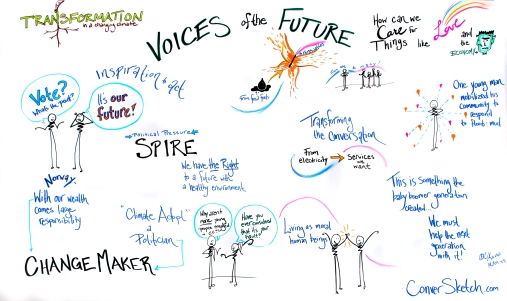Objectives
The primary objective of the project is to investigate how Norwegian youth perceive their futures in a changing climate, and the implications for their sense of agency, responsibility and political engagement, in order to understand the fundamental social, cultural, and institutional prerequisites that must be in place to develop effective climate responses. This involves exploring the beliefs, values and worldviews of young people and their variations across different ethnic/minority, religious, class and gender backgrounds. The project will identify the significant conditions that shape youth's possibilities for influence and political engagement, and the factors that promote a healthy development of a sense of responsibility and ecological citizenship.

Thus, the secondary objective of the project is to understand the role of youth in promoting transformational change regarding responses to climate change, as well as the possible consequences of marginalizing or excluding their voices. The project will draw attention to new forms of political participation, new conceptualisations of citizenship, and new roles for youth in a changing climate.
Background
Using an integral approach and mixed methods, three themes guide the research:
- Beliefs, values and worldviews: What do young Norwegians think and feel about climate change and proposed responses to climate change? What are their attitudes towards the future, and how do they perceive of their possibilities to participate in and influence the future?
- Agency and political engagement: How and through what channels and arenas are youth making their voices heard, and what are the measurable outcomes? What encourages or hinders active engagement with climate change policies?
- Responsibility and ecological citizenship: What conditions and factors can foster the development of youth as empowered ecological citizens to address the multi-faceted challenges of climate change?
Outcome
Besides drawing on existing literature and statistics, data will be collected through Q-methodology, focus groups, interviews and a secure web site where youth may post comments, pictures or movies on relevant subjects. Participants will be Norwegian youth between the ages of 13 and 18, recruited through schools and environmental organisations. An information folder will be produced to introduce the project to youth, parents, and schools, and subsequent to data collection, presentations and open information meetings will be held at the schools, organisations and municipalities involved in the project. Digital multi-media data will be used to engage youth and provide an arena for participation and expression of their visions and voices, as well as to disseminate the results. In addition to publications in peer reviewed journals, and we also plan to write editorials on youth and climate change.
Funding scheme
The total grant award was for NOK 4 400 000
- Climate change and impacts in Norway (NORKLIMA)
- The Research Council of Norway
Project period
Feb. 2011 - Dec. 2017
